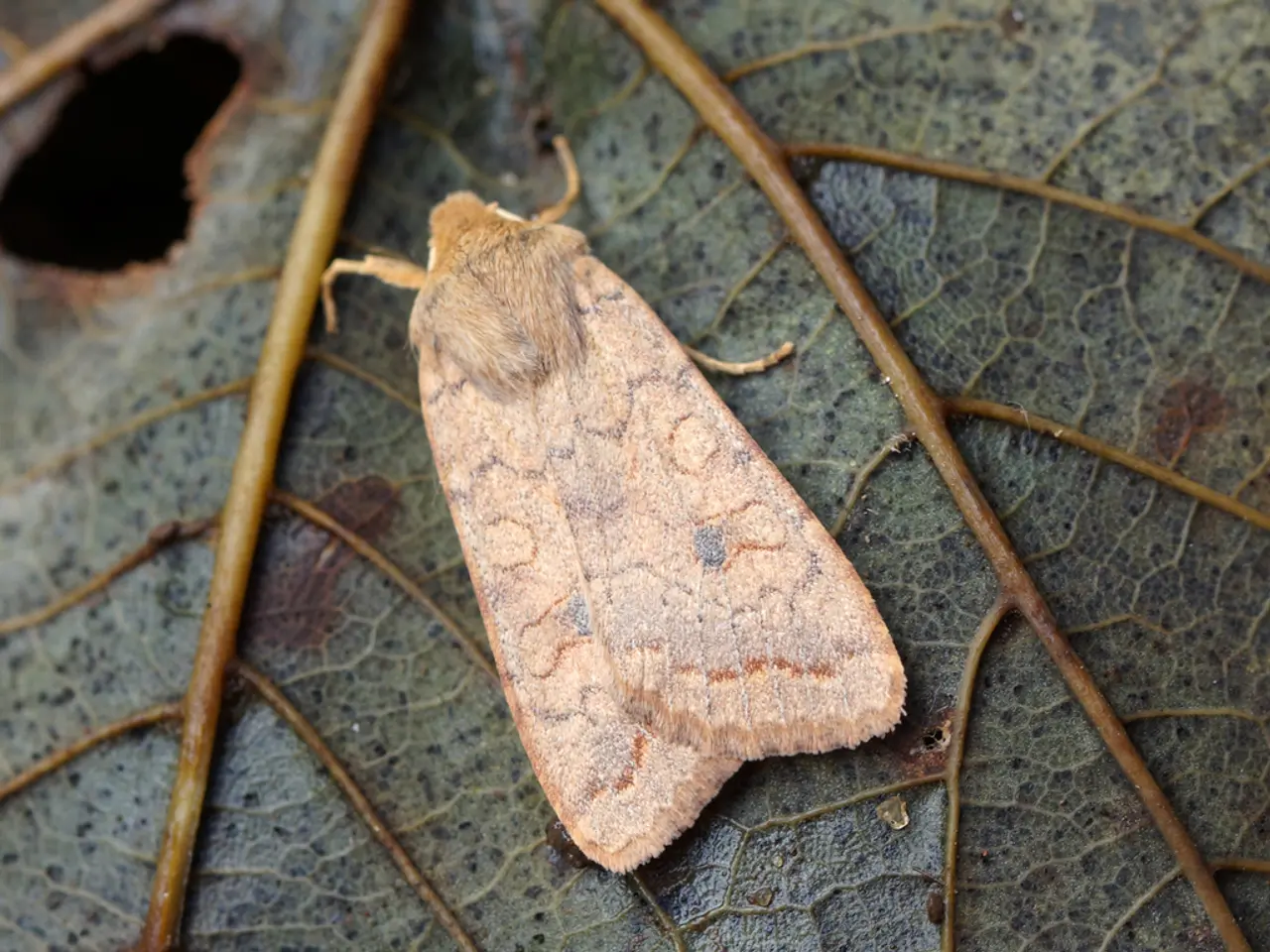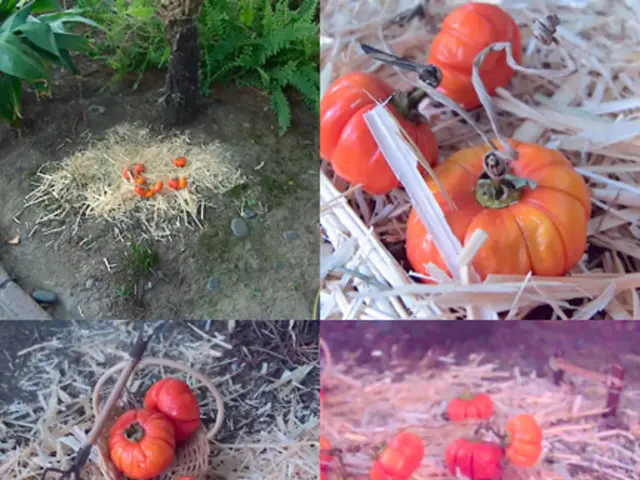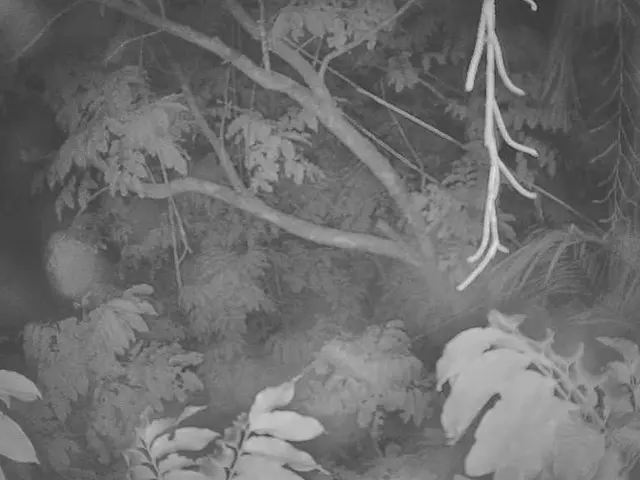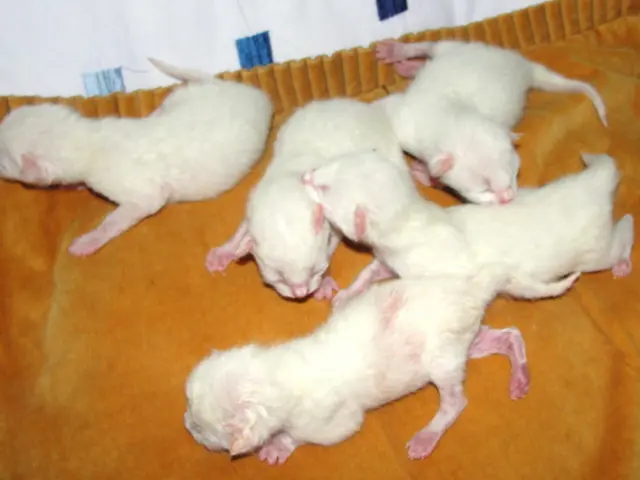Insect infesting horse chestnut trees, identified as Horse Chestnut Scale Insect
The horse chestnut scale insect, a sap-sucking pest originating from southern Europe, is currently spreading northwards, posing a growing concern for tree enthusiasts and gardeners alike. However, recent research has uncovered effective organic methods for controlling these infestations, offering a sustainable solution to this problem.
One promising approach involves the use of plant-based sticky adhesives. Inspired by carnivorous plants, researchers have developed sprayable adhesives made from natural deep eutectic solvents (NADES), combining water, sugars, and hyaluronic acid. These adhesives have shown success in trapping pests like the horse chestnut scale insect, with low phytotoxicity and good biodegradability, making them suitable for a variety of tree species, including horse chestnuts, magnolias, cornus, bay, lime, and acer trees.
Another strategy involves encouraging natural predators, such as lady beetles, to manage scale insect populations. By promoting these predators through habitat management and avoiding broad-spectrum insecticides, a natural balance can be maintained.
Horticultural oils are another tool in the organic arsenal. These oils, commonly used to control scale insects and other pests, smother the insects and their eggs. They are most effective when applied during the crawler stages of the scale insect.
Pruning heavily infested branches can also help reduce scale populations and limit spread and damage. Timely pruning supports overall tree health and minimizes pest habitat.
Cultural practices, such as proper fertilization, watering, and careful pruning, also play a role in decreasing susceptibility to infestations and secondary damage caused by pests.
While chemical controls are typically avoided in organic management, integrating plant-based adhesives, encouraging beneficial predators, and using horticultural oils alongside good cultural care form an effective integrated pest management strategy for the horse chestnut scale insect and related pests.
This infestation is particularly pronounced in urban areas due to higher temperatures. Mature, adult horse chestnut scale insects can be found on the main trunk and branches of host plants, and in summer, they drop off, leaving white clusters of eggs. These mature insects can be up to 5mm long and can appear unsightly on host plants.
The horse chestnut scale insect was first discovered in the UK in the late 1960s and is now widespread and common in the south of the UK and Ireland. The insect's presence can encourage sooty mould to develop due to the honeydew it produces.
Organic control methods, such as scraping the eggs off by hand and moving them to an alternative tree, or destroying them, are available for those seeking a more environmentally friendly approach to managing this pest.
As the horse chestnut scale insect continues to spread, these organic solutions offer a promising and sustainable approach to controlling its population without harming beneficial insects or the environment.
- The use of plant-based sticky adhesives, developed from natural deep eutectic solvents, is proving effective in trapping pests like the horse chestnut scale insect, a promising approach in environmental-science for controlling infestations in home-and-garden settings, including various tree species such as horse chestnuts, magnolias, cornus, bay, lime, and acer trees.
- By promoting natural predators like lady beetles, and avoiding broad-spectrum insecticides, we can maintain a natural balance in the environment, allowing these predators to manage scale insect populations effectively, reducing the need for chemical controls.
- Horticultural oils, commonly used to manage scale insects and other pests, smother the insects and their eggs, providing an organic method for pest control that is most effective when applied during the crawler stages of the scale insect.








